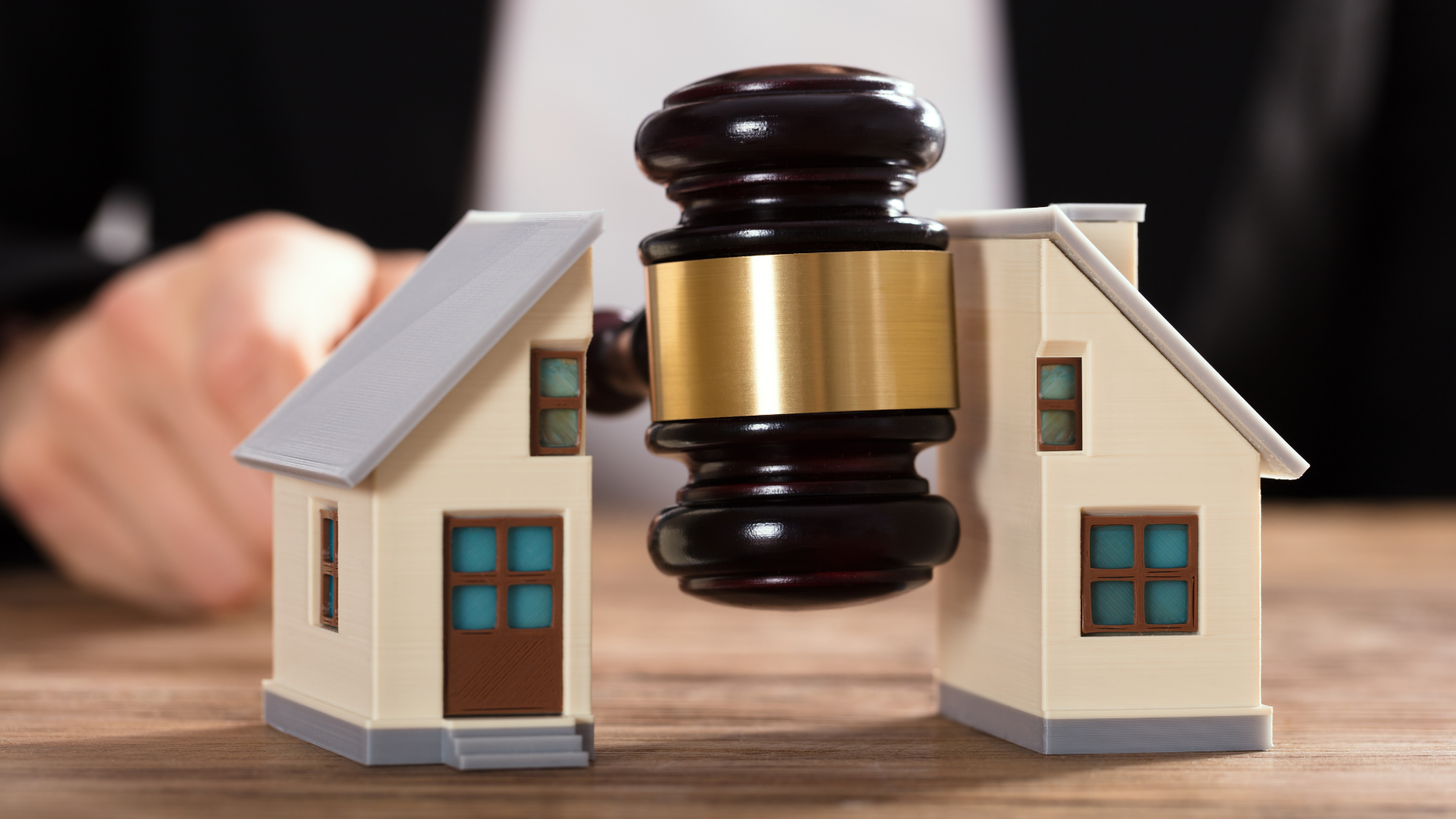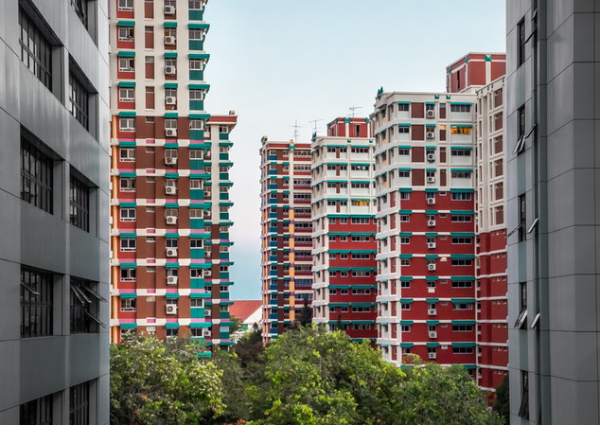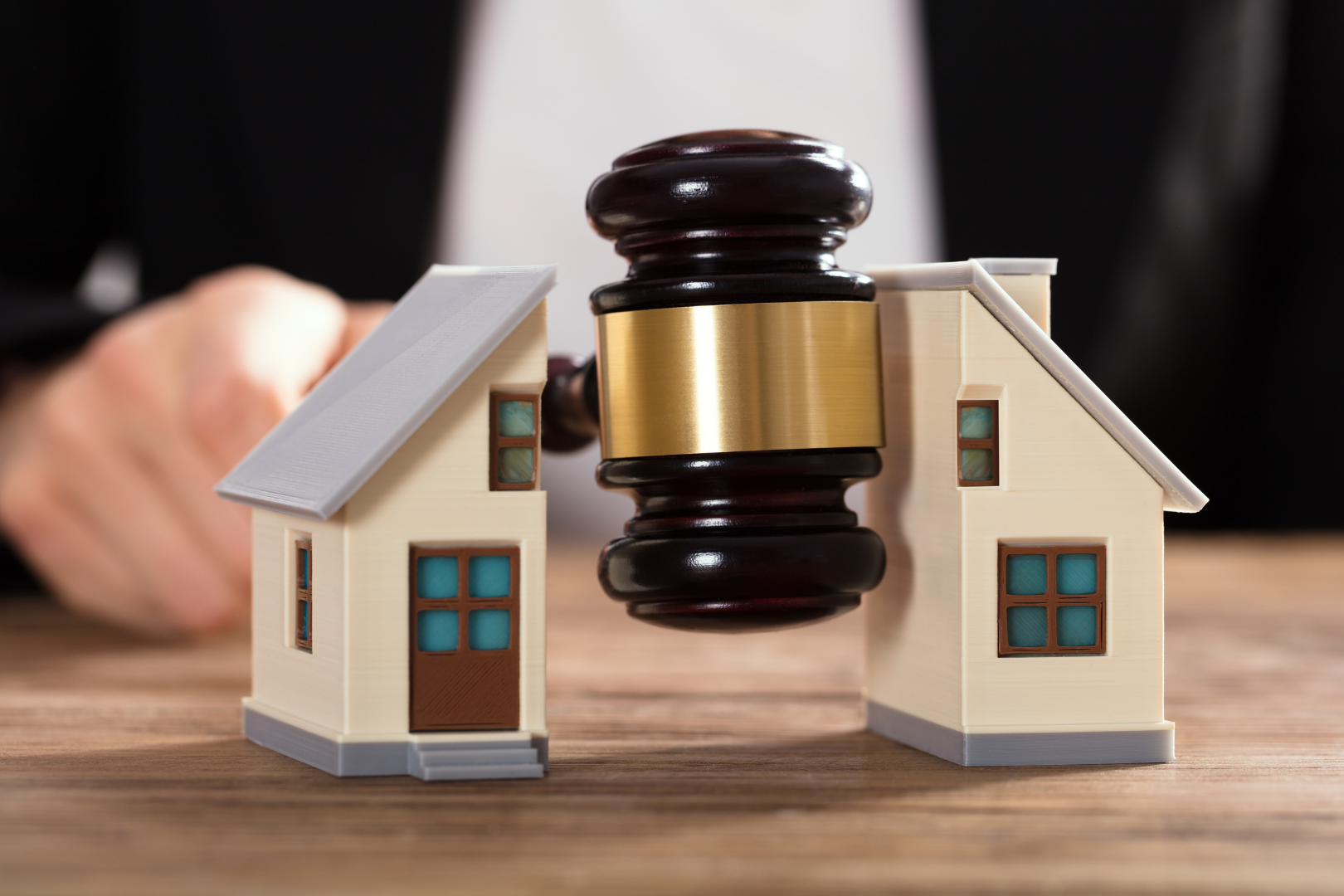How is Your HDB Flat Divided in a Divorce?
This article explains what happens to your HDB flat once you’re divorced, division of matrimonial assets pursuant to Women's Charter, and Administration of Muslim Law Act, whether divorcee can keep the flats, or buy/rent another HDB flat
When a married couple divorces, their property will typically be divided up between the two of them, so what is likely to happen to their HDB flat?
The property you own as a married couple is probably your most valuable asset that must be divided up in a divorce. This article will cover the ramifications of a divorce as it pertains to your HDB flat and under what conditions you may be able to keep it.
Table of Contents
What Happens to a Married Couple’s HDB Flat if they Get Divorced and Who Decides?
Division of Assets for Muslims
If You’re Entitled to Keep Your HDB Flat Once You’re Divorced, Will You be Able to?
If We Have to Sell Our HDB Flat, How Are the Proceeds To Be Divided?
Once You’re Divorced, Are You Allowed to Rent or Buy a New HDB Flat?
How is Your HDB Flat Divided Up if Your Marriage Ends in Annulment?
What Happens to a Married Couple’s HDB Flat if they Get Divorced and Who Decides?
In Singapore there are several possible ways the disposition of an HDB flat can be decided in a divorce, which are as follows:
1. You and your spouse mutually agree on what will happen to your HDB flat once you’re divorced.
There is nothing preventing you and your spouse from discussing the matter and coming to an agreement on what will happen to your HDB flat once you’re divorced.
One possible scenario is that one spouse agrees to transfer his/her ownership in the flat over to the other spouse, allowing the other spouse to keep it after the divorce.
Or the two of you can decide to put the flat on the market and when it sells you can split the proceeds in specified proportions.
The decision you make on how your HDB flat is to be handled in your divorce will be recorded in a judgment issued by the court during a hearing on ancillary matters. These ancillary matters have to do with the custody and care of any children from the marriage, maintenance issues and other combined matrimonial assets.
Should you and your spouse be unable to come to an agreement on what should happen to your flat once you’re divorced, it will be up to the court to decide for you when dividing up all your other matrimonial assets.
2. The court is left to decide what happens to your HDB flat once you’re divorced
During divorce proceedings, it is up to the court to divide the matrimonial assets that the two of you cannot come to an agreement on as to how they should be divided.
a. Is the HDB flat actually a matrimonial asset?
More than likely your HDB flat is a matrimonial asset that must be divided in your divorce.
According to Singapore’s Women’s Charter a “matrimonial asset” is any type of asset acquired during the marriage by either or both parties. In the event that the asset was acquired prior to the marriage by just one party, or by both, that asset will only be considered a matrimonial asset if:
1. It is typically enjoyed and/or used by both spouses and/or their child(ren) while living together for purposes of transportation or shelter, or for household needs, recreation, education, aesthetic, or social fulfilment; and
2. This asset has been dramatically improved during the marriage by the other spouse or by both spouses.
If the HDB flat was acquired prior to the marriage by way of a gift from a loved one, or an inheritance from one of the spouse’s father or mother when he/she died, it will not initially be considered a matrimonial asset.
However, said HDB flat can turn into a matrimonial asset if the flat becomes their matrimonial home, or if the flat had been dramatically improved during the marriage, by either the other spouse or both spouses.
Understand, that one spouse cannot claim an interest in an HDB flat that the other spouse owns, just because they were married. Legally, that spouse can only have an interest in the flat if it fits the definition of a “matrimonial asset” in terms of the Women’s Charter.
b. If the HDB flat is determined to be a matrimonial asset, how is it divided?
When the court divides up the matrimonial assets, it also decides the disposition of the HDB flat. The court order may include the following:
· Require that one spouse transfer their ownership in the flat over to the other spouse
· Order the couple to sell the flat, dividing the proceeds between them in specific proportions
There is no legal requirement that matrimonial assets be equally divided.
For example, when the marriage is of short duration, the court prefers to split up the assets to match each party’s financial contribution towards those purchases.
How the court decides to divide up the matrimonial assets will depend on a number of factors, like those spelled out in the Women’s Charter, section 112(2) below:
Women’s Charter, section 112(2):
It shall be the duty of the court in deciding whether to exercise its powers under subsection (1) and, if so, in what manner, to have regard to all the circumstances of the case, including the following matters:
| (a) | the extent of the contributions made by each party in money, property or work towards acquiring, improving or maintaining the matrimonial assets; |
| (b) | any debt owing or obligation incurred or undertaken by either party for their joint benefit or for the benefit of any child of the marriage; |
| (c) | the needs of the children (if any) of the marriage; |
| (d) | the extent of the contributions made by each party to the welfare of the family, including looking after the home or caring for the family or any aged or infirm relative or dependant of either party; |
| (e) | any agreement between the parties with respect to the ownership and division of the matrimonial assets made in contemplation of divorce; |
| (f) | any period of rent-free occupation or other benefit enjoyed by one party in the matrimonial home to the exclusion of the other party; |
| (g) | the giving of assistance or support by one party to the other party (whether or not of a material kind), including the giving of assistance or support which aids the other party in the carrying on of his or her occupation or business; and |
| (h) | the matters referred to in section 114(1) so far as they are relevant. |
However, the factors above are not the whole story because the court will consider all circumstances when deciding how to divide up the HDB flat.
Division of Assets for Muslims
According to the Administration of Muslim Law Act, section 52(7), the Syariah Court will divide up all matrimonial assets and apportion them post-divorce as it deems “just and equitable.”
Administration of Muslim Law Act, section 52(7):
In making any order under subsection (3)(d), the Court shall have power to order the disposition or division between the parties of any property or the sale of any such property and the division between the parties of the proceeds of such sale in such proportions as the Court thinks just and equitable.
Administration of Muslim Law Act, section 52(3):
The Court may, at any stage of the proceedings for divorce or nullity of marriage or after making a decree or order for divorce or nullity of marriage, or after any divorce has been registered under section 102 before 1st March 2009, on the application of any party, make such orders as it thinks fit with respect to —
| (a) | the payment of emas kahwin and marriage expenses (hantaran belanja) to the wife; |
| (b) | the payment of a consolatory gift or mutaah to the wife; |
| (c) | the custody, maintenance and education of the minor children of the parties; and |
| (d) | the disposition or division of property on divorce or nullification of marriage. |
Administration of Muslim Law Act, section 52(9):
For the purposes of subsection (7), the Court may in particular, but without limiting the generality of subsections (4), (5) and (6), make any one or more of the following orders:
| (a) | an order for the sale of any property or any part thereof, and for the division, vesting or settlement of the proceeds; |
| (b) | an order vesting any property owned by both parties jointly in both the parties in common in such shares as the Court considers just and equitable; |
| (c) | an order vesting any property or any part thereof in either party; |
| (d) | an order for any property, or the sale proceeds thereof, to be vested in any person (including either party) to be held on trust for such period and on such terms as may be specified in the order; |
| (e) | an order postponing the sale or vesting of any share in any property, or any part of such share, until such future date or until the occurrence of such future event or until the fulfilment of such condition as may be specified in the order; |
| (f) | an order granting to either party, for such period and on such terms as the Court thinks fit, the right personally to occupy the matrimonial home to the exclusion of the other party; |
| (g) | an order for the payment of a sum of money by one party to the other party. |
If You’re Entitled to Keep Your HDB Flat Once You’re Divorced, Will You be Able to?
In summarising the information covered above, you may be legally entitled to keep your HDB flat once you’re divorced if either of the following occurs:
- You and your spouse agree that he/she will transfer his/her ownership share of the flat over to you.
- In the absence of an agreement between you and your spouse, the court issues an order for your spouse to transfer his/her ownership share of the flat over to you.
Even though you may be legally entitled to keep your HDB flat after your divorce, this doesn’t necessarily mean you can. The catch is that you first must meet HDB’s strict eligibility requirements.
Your circumstances must coincide with one of the following:
1. Your child(ren) will be living with you under your care and control.
If after the divorce you retain care and control of your child(ren), you are eligible to keep the flat. But you must also be able to assume financial responsibility for the HDB flat’s home loan.
2. You meet the eligibility requirements for the Single Singapore Citizen Scheme.
If there are no children involved, you may still be allowed to keep the flat if you qualify for the Single Singapore Citizen Scheme. To apply for this scheme, you must be a citizen of Singapore and at least 35 years of age. If you meet the requirements, you should be able to keep the flat.
If you do not meet the requirements of the Single Singapore Citizen Scheme, you can try including someone else to retain the flat with you under another housing scheme. But you must still meet the eligibility requirements of that scheme.
What Happens if Your Circumstances Do Not Match Either of the Above?
If your circumstances are such that you cannot meet the requirements stated above, you may have no choice but to sell your flat in the divorce.
If you and your spouse have lived in the HDB flat for the Minimum Occupation Period (MOP) of five years, you can list your flat for sale on the open market.
However, if you have not finished the 5-year MOP, then you are both obligated to return your flat to HDB for the prevailing compensation price, which would be subject to approval by HDB.
If We Have to Sell Our HDB Flat, How Are the Proceeds To Be Divided?
The framework for dividing up the proceeds from the sale of an HDB flat is no different than dividing up ownership interest in the HDB flat itself (as discussed earlier in this article).
What this means is that you and your spouse can come to an agreement on what the proportions of the split will be. But if the two of you cannot agree, the court will have to determine this, based on the following:
-
Whether the proceeds from the sale are in fact “matrimonial assets”
- The factors used for determining how the split should be proportioned
Example Case
The husband contributed much more financially when the HDB flat was purchased as the couple’s matrimonial home. He paid 80% towards the purchase price, and the wife paid 20%. The couple’s marriage lasted 18 years.
The percentages each contributed does not mean that the sale proceeds will be divided up according to those same percentages. In this case, the court considered the wife’s non-financial contributions to the marriage, like her having taken care of the home and family. The court gave her credit for those contributions.
Furthermore, the court considered that this was a marriage of long duration, lasting nearly two decades. The wife paid for furniture and other items for the home as well as for the children’s clothing, which were also taken into consideration.
Ultimately, the court ordered that the proceeds from the sale of the HDB flat be split 60/40, with the husband receiving 60% and the wife receiving 40%.
Once You’re Divorced, Are You Allowed to Rent or Buy a New HDB Flat?
There are a number of available schemes that help divorcees rent or buy HDB flats. You may also be eligible for a housing grant.
You can learn about these schemes and whether you would be eligible for any of them by reading our other article, Are Divorcees Allowed to Rent or Buy an HDB Flat?
How is Your HDB Flat Divided Up if Your Marriage Ends in Annulment?
A marriage may be annulled in Singapore within three years of the wedding date in certain circumstances. According to the Women’s Charter, the factors that apply in dividing up the matrimonial assets in a divorce would also apply in an annulment.
When a marriage ends in annulment, both spouses typically must surrender their flat to HDB for the prevailing compensation price, which is subject to approval by HDB. Since an annulment must be done within three years of the wedding date, the couple would have not yet met their 5-year Minimum Occupancy Period (MOP).
But if your parents were listed on the original purchase application, you may be able to keep the flat with your parents after your annulment. This is the only exception to the rules.
Should both spouses come to an agreement on transferring ownership of the flat to one spouse or the other, you can make an appeal to HDB. All ownership transfers must be approved by HDB and the spouse retaining ownership must meet eligibility requirements.
At Pinnacle Estate Agency, we strongly believe in sharing our real estate knowledge to the public. For more content like this article, check out our Singapore Property Guides.






